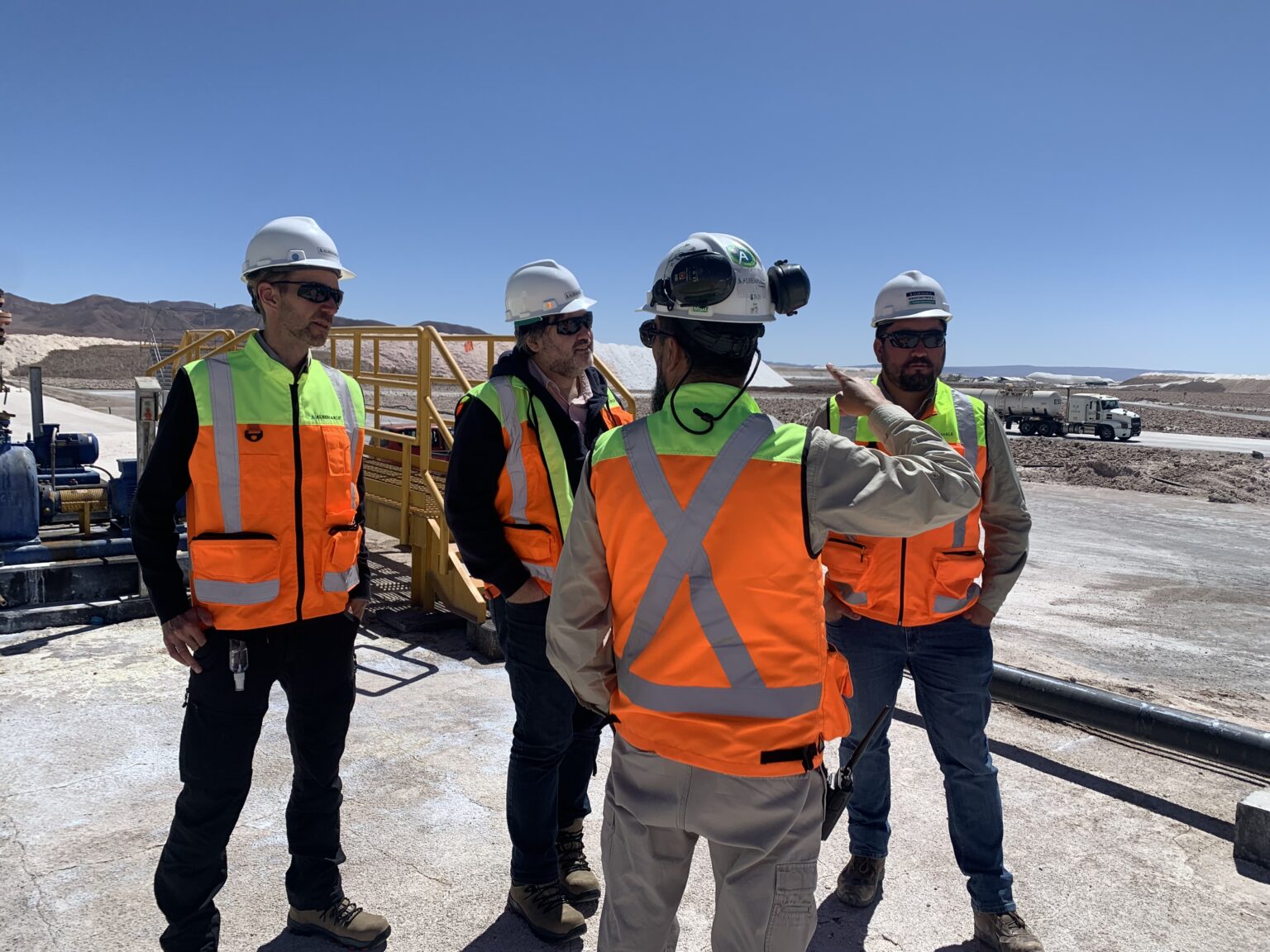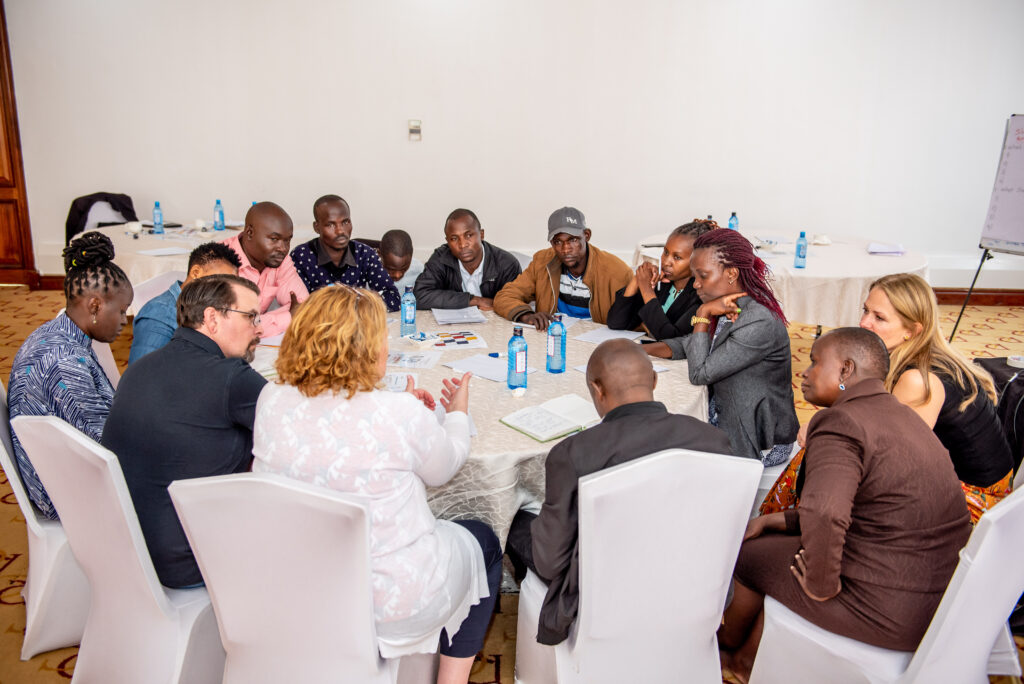The challenge of achieving the Sustainable Development Goals (SDG) by 2030 is more complex than just mobilising the necessary funds. Results in the three dimensions of sustainable development (social, environmental and economic) require effective governance and a re-orientation of how public and private actors interact. NIR designs and implements programmes in support of this shift to produce relevant outomes.


The transition to greener industry will only happen through the transformation of companies and unions. Ensuring the active participation and commitment of employees in the process is crucial for transformation to succeed. SWP develops the capacity of all actors in value chain on workplace cooperation.

Providing project-specific training to partners in low- and middle-income countries accelerates investments in sustainable infrastructure. The Sustainability Impact Accelerator deliver project-specific training and support to our in-country partners, It has become a valuable addition to Team Sweden’s toolbox. Demand for knowledge transfer is high, and we currently have over 80 infrastructure projects in our pipeline.

A increasing demand for minerals is needed for the global energy transition. With some of the world’s largest known reserves of copper and lithium the MARS programe (Minería Americana Responsible y más Sostenible) takes a regional focus on Latin America.

To respond to complexitites it is crucial to understand the development needs in low- and middle-income countries and the connection to business operations. Meeting Point NIR offer three different pathways for Swedish industry to connect and learn from development partners and country representatives

NIRNET is a proactive way to add value and capitalize on the experience of business professionals to further increase export trade and expand business in complex markets.
All our programmes are supported by an active group of representives from our member companies or the industry. They are volunteering and act as a sounding board to the NIR teams.
Having company representatives on our steering committee adds expertise and strategic guidance as well as broadens our networks. They help ensure that our programs remain relevant and are an important link between industry and our in-country partners.

Strategic and active. Christina Blixt, Global Employee Relations Lead at Volvo Group, and Johan Järvklo, International Secretary at IF Metall, are both members of the steering committee for SWP. Here they discuss workplace cooperation at a networking session with union representatives and HR representatives in Kenya.
Team Sweden is a network of government authorities, agencies and Swedish companies that support major infrastructure projects globally, with the aim to contribute to the development of sustainable projects.
This executive summary presents the findings from the study “Workplace Cooperation: Finding Practical Solutions in the Colombian Context,” conducted by the Fundación Ideas para la Paz (FIP). The study evaluates the added value of the Swedish Workplace Programme (SWP) dialogue and cooperation model within the Colombian labor market.
Throughout 2022, FIP dedicated efforts to thoroughly understand the SWP model, including its concept, foundations, implementation process, and contributions to the labor market. In 2023, FIP documented the experiences of three companies—SKF Latin Trade, Securitas, and Epiroc—that implemented the SWP model in practice. The study also included face-to-face workshops to gather feedback from various stakeholders including civil society, businesses, government, academia, and international cooperation. The findings suggest that the SWP model has the potential to strengthen labor relations, contribute to decent work, and resolve workplace conflicts in Colombia.
The case studies highlight the importance of collaboration between employers and workers to promote decent work and sustainable development in Colombia. They demonstrate that social dialogue facilitates worker participation in labor decision-making, enhances their representativeness, and promotes cooperation between employers and employees, thus improving labor relations and contributing to the well-being of both employees and companies.
The SWP model is particularly noted for improving workplace relationships and commitment to jointly finding solutions to challenges faced by workers and the company. It empowers workers, enhances leadership, and helps integrate business policies into daily practices, reducing the initial disconnect between management objectives and the day-to-day realities of workers. The study also highlights the model’s capacity to manage conflicts constructively, transforming the perception of conflict as an opportunity for improvement. Structured dialogues deepen understanding of the underlying causes of conflicts, fostering empathy and facilitating effective resolution. This promotes a culture of collaboration and a democratic approach to decision-making, building trust.
Additionally, the model is recognized for enabling workers to make decisions, identify challenges, and propose solutions that impact their well-being, and bridging gender gaps in the workplace. Its inclusive approach adapts to the unique needs and characteristics of each company, promoting a stronger and more diverse organizational culture. It also drives good work performance and productivity by involving workers in problem identification and resolution, as well as in implementing improvements and efficiently identifying ESG (Environmental, Social, and Governance) risks for companies.
The document identifies the SWP model’s added value in empowering direct interaction among labor stakeholders in Colombia, overcoming historical or cultural reservations, and contributing to the development of stronger labor relations and improved workplace environments in the country.
Challenges and opportunities of the model are also discussed. The study points out the importance of addressing value chain risks, particularly in a global context where corporate clients demand decent work processes and due diligence. It emphasizes the need to integrate SMEs into this process and use anchor companies as drivers of social dialogue throughout the value chain. The role of the state in social dialogue and the importance of highlighting the benefits of the model for adoption across various business sectors are discussed.
The opportunities of the model include raising awareness of human rights in the workplace in line with the United Nations Guiding Principles (UNGP), to strengthen due diligence, manage risks, promote long-term sustainability, and improve organizational culture. The document also underscores the importance of involving workers in change processes, leveraging their insights for continuous improvement of processes, and fostering innovation opportunities. Lastly, it suggests replicating the model in value chains to address work environment risks and gender biases, involving suppliers and contractors, and integrating the model into corporate policies to strengthen existing programs and transform organizational culture towards resource efficiency and effective participation of employers and workers.